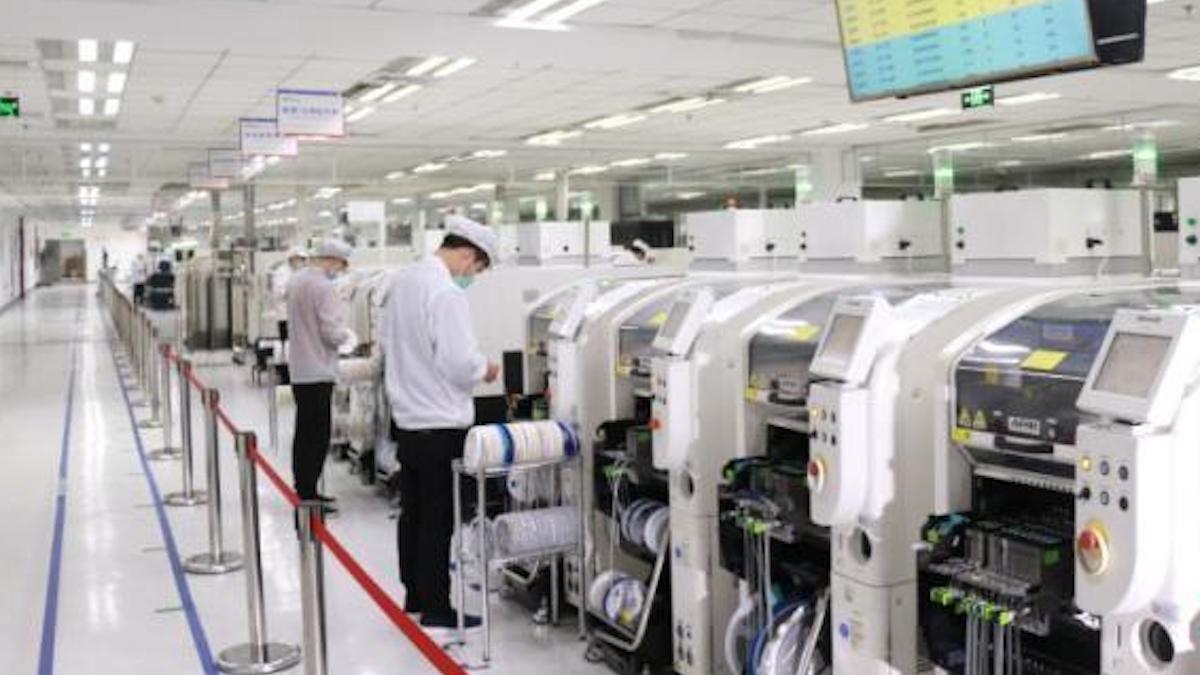[ad_1]
The Chinese government on Sunday unveiled an action plan to guide the building of a high-standard market system in the next five years.
The plan proposes more than 51 specific measures covering five aspects, including the basic institutions of the market, efficient allocation of production factors in the market, market environment and quality, high-level opening-up and the oversight mechanism of the modern market system.
China will consolidate basic institutions of the market by comprehensively improving property rights protection, implementing the negative list system for market access and making advancements in fair competition, according to the plan.
Measures should be taken to improve laws and regulations on equal protection of property rights, enhance the judicial protection system for property rights enforcement and strengthen the protection of intellectual property rights.
The country will also adopt a nationwide negative list, expand market access trials, as well as strengthen and improve enforcement of laws on anti-monopoly and anti-unfair competition, according to the plan.
To promote the efficient allocation of factors, the plan vowed efforts to promote the orderly flow of labor resources, the healthy development of the capital market and the development of knowledge, technology and data.
Gold consumption
China’s gold consumption fell 18.13% year-on-year to 820.98 tonnes last year as the Covid-19 outbreak hit sales of gold jewelry, industry data showed Monday.
Consumption of gold jewelry in the Chinese market stood at 490.58 tonnes in 2020, plunging 27.45% year-on-year, according to data released by the China Gold Association.
During the same period, consumption of gold coins and bars went up 9.21% year-on-year to 246.59 tonnes, while consumption of gold for industrial and other uses fell 16.81% from a year earlier to 83.81 tonnes.
After recording a 48.2% slump in the first quarter of 2020, China’s gold consumption has gradually picked up following effective epidemic control and economic recovery. In 2020, China’s gold output came in at 365.34 tonnes, down 3.91 % year-on-year.Â
Manufacturing PMI
China’s manufacturing purchasing managers index (PMI) dipped to 51.3 in January, according to the National Bureau of Statistics (NBS).
The official PMI missed Reuter’s median forecast of 20 economists, which had expected the figure to dip slightly to 51.6 in January from 51.9 in December. A reading above 50 indicates an expansion in activity on a monthly basis.
NBS senior statistician Zhao Qinghe said the figure dropped last month as it was a traditional off-season of China’s manufacturing industry before the spring festival.
The recent resurgence of Covid-19 cases in China has temporarily affected the production and operation of some enterprises, Zhao added.
Company news
The first batch of 62 companies under HNA Group, including three listed companies, has entered bankruptcy restructuring, the company said on Saturday.
The three listed companies, HNA Holdings, HNA Infrastructure and CCOOP Group Co Ltd, cover aviation, infrastructure and investment, as well as commodity circulation.
HNA Group, the parent company of Hainan Airlines, said Friday it had received notice from the Hainan High People’s Court that creditors had sought the company’s bankruptcy restructuring due to a failure to repay debts.
Xiaomi Corp, a Chinese smartphone maker, issued a legal complaint in a Washington court on Friday against the move by the former administration to blacklist the company.Â
The Defense Department, under the Trump administration in mid-January, added Xiaomi and eight other companies to a blacklist, claiming they had ties with the Chinese military, which requires American investors to divest their holdings in the firms by a set deadline.
In the complaint, addressed to Biden-appointed Defense Secretary Lloyd Austin and Treasury Secretary Janet Yellen, Xiaomi called the decision “unlawful and unconstitutional†and rejected claims it is controlled by the Chinese military.
The stories were compiled by Nadeem Xu and KoKo and first published at ATimesCN.com.
[ad_2]
Source link










